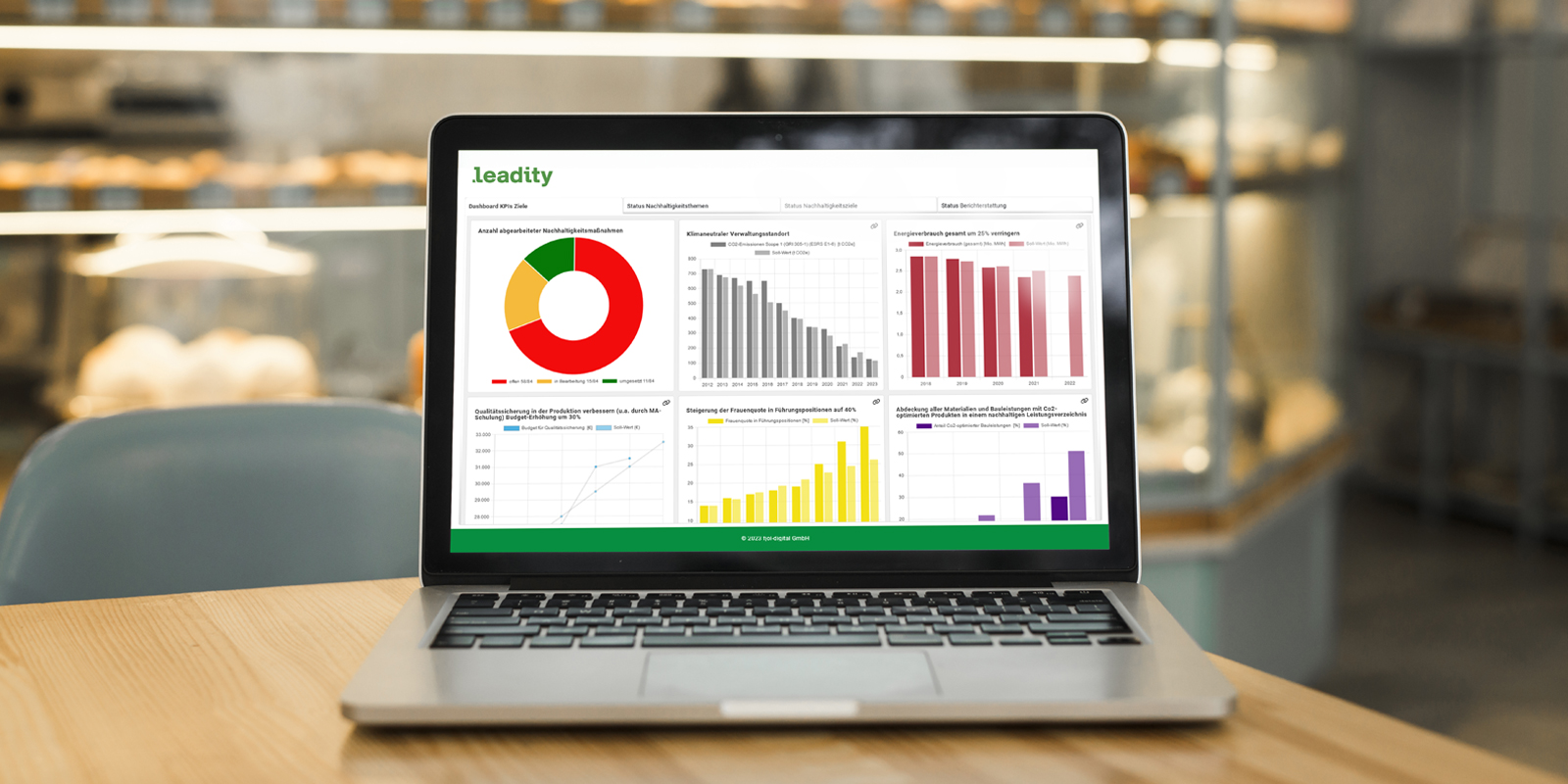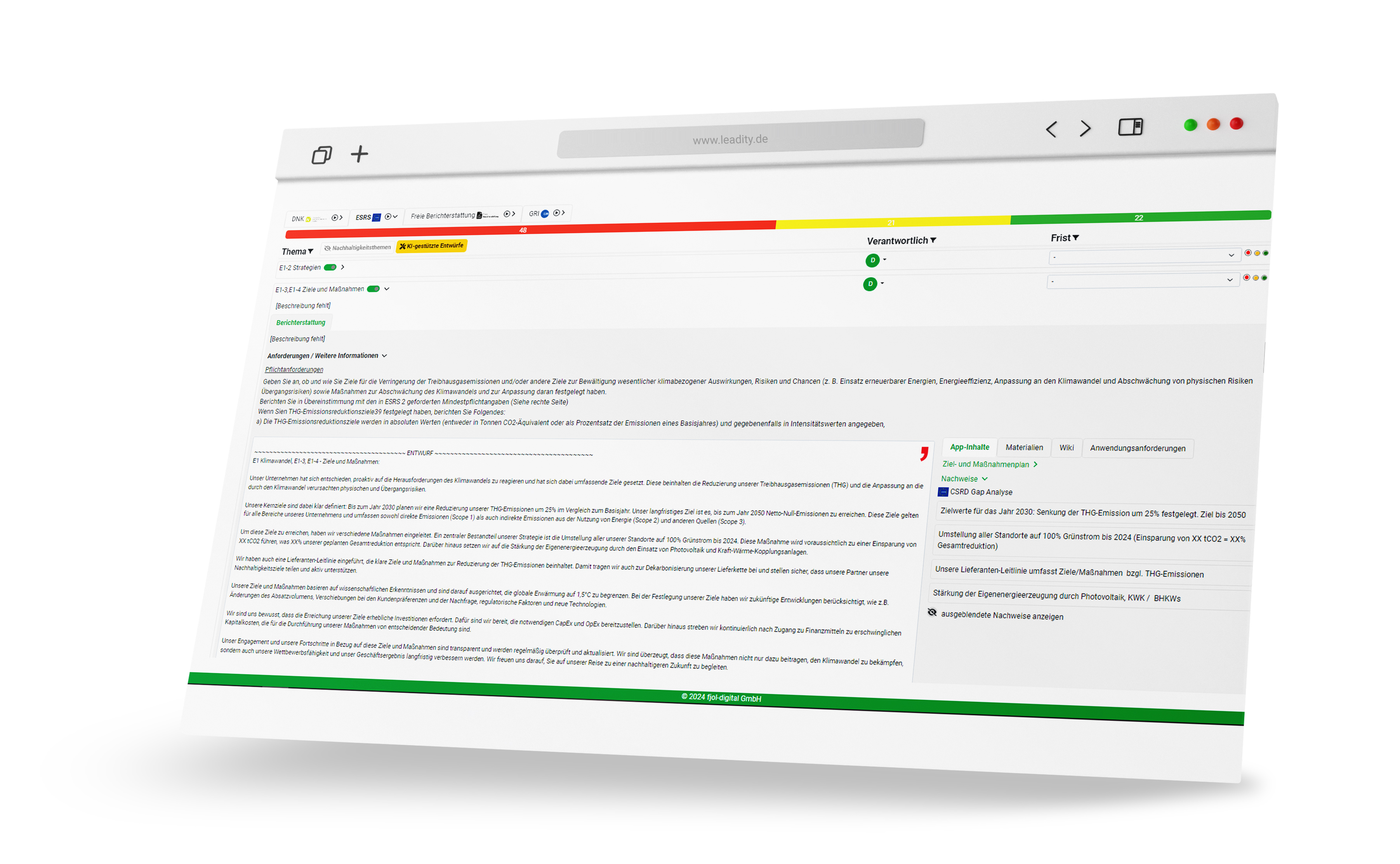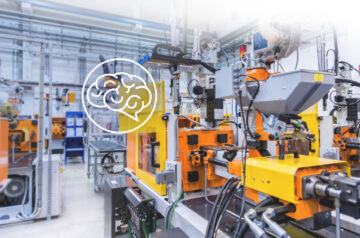
Generative AI & automation simplifies navigating the regulatory jungle
The European Commission’s Corporate Sustainability Reporting Directive (CSRD) will mandate the first companies in Germany to disclose their sustainability endeavors in alignment with a standardized EU reporting framework, the ESRS, starting in 2024. In total, more than 15,000 companies are affected. Reporting must cover sustainability within one’s own company. For this, many companies also incorporate data on emissions generated along the supply chain. It is therefore expected that large corporations will engage with smaller suppliers early on to acquire their key sustainability metrics. This implies that SMEs will need to address some of the reporting in advance, resulting in a significant amount of additional work for them.
Cooperation between Comma Soft and leadity
The sustainability reporting with GenAI showcased here is the outcome of a collaborative project between Comma Soft and the sustainability management software leadity. leadity is a comprehensive solution for ESG strategy, management, and reporting, integrating Alan to assess data and generate sustainability reports compliant with the CSRD standard.

Easily document sustainability performance at the touch of a button, ensuring compliance with CSRD standards
This is where large language models and generative AI can really support your company! They not only aid in understanding the extensive CSRD requirements and associated standards such as ESRS, they also assist you in creating a sustainability report that meets the formal requirements and accurately documents your existing sustainability initiatives in the right places. A sustainability report at the touch of a button, so to speak – only the final touches need to be done manually.
Before we can begin, however, we need to collect the required data. Depending on the company’s size, this can be a significant endeavor, as comprehensive information is needed about various areas:
- Climate change
- Pollution
- Water and marine resources
- Biodiversity & ecosystems
- Resource utilization & the circular economy
- Own employees
- Employees: inside the value chain
- Affected communities
- Consumers
- Corporate management
Because of the concept of double materiality, companies are required to report on strategy, corporate policies, objectives and measures, governance mechanisms, and key performance indicators (KPIs) for nearly all of these areas. However, the required data and textual documents are typically stored in disparate systems and applications – some data may not even be documented yet. Here, too, a combination of sustainability consulting, management software such as leadity and generative AI can provide support: databases can be semantically searched to locate existing data and identify any missing information. Once the data sources are identified, automation options and the utilization of ETL pipelines for data extraction can reduce the annual processing effort significantly. Investing in suitable sustainability management software, such as leadity, is also a prudent decision. Once the data is available in structured form, the process of creating CSRD reports can be greatly simplified with the assistance of generative AI.
Convenient CSRD reporting with generative AI
A GenAI solution like Alan, the Comma LLM, utilizes ESRS requirement texts, ESG evidence, objective documentation, catalogs of measures, wikis, and the company’s existing CRM and ERP systems to generate reports. This data is then leveraged to generate a report that details the company’s sustainability performance in the exact standard report format desired. Instead of spending weeks searching for figures and drafting texts, a report is prepared for an initial review in a fraction of the time.
Regulatory-compliant utilization of GenAI in CSRD reporting
Large language models (LLMs) like Comma LLM are a type of generative AI trained to analyze extensive text information and data, and present it in the desired format, such as a report. However, the challenge with many GenAI tools is that they often fail to meet the requirements of European and German data protection legislation. For instance, data is typically stored in a US cloud and utilized to train the models. However, sensitive company data, in particular, should not and must not be made public. In the case of the Comma LLM used here, the data remains within a German cloud and is not utilized for additional training purposes.
The plus in safety and control
Companies with exceptionally stringent security requirements can even have their own GenAI solution established based on Comma LLM and operate it on-premises. Interfaces for integrating the company’s proprietary data are already accessible through the combination of leadity and Comma LLM. Companies also have the option to display the sources utilized for the report within the generated document, enabling a transparent and auditable review. An in-house GenAI solution also provides the advantage of being adaptable for creating not just CSRD reports, but also other types of reports, or for streamlining supply chain monitoring. The solution can be employed for all aspects of knowledge management and numerous other use cases.
Do you have any inquiries regarding AI-supported CSRD reporting or other potential applications of generative AI within your company? Feel free to contact us for more information:












